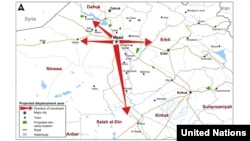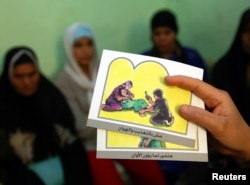ISIS issued a fatwa that orders the female genital mutilation for girls and women between 11 and 46.
4 million girls and women could suffer that barbaric torture with lifelong consequences in the so called Islamic State. What bastards!
BBC News - Isis 'orders female genital mutilation' for women in Mosul
http://english.alarabiya.net/en/New...-order-female-genital-mutilation-in-Iraq.html
4 million girls and women could suffer that barbaric torture with lifelong consequences in the so called Islamic State. What bastards!
BBC News - Isis 'orders female genital mutilation' for women in Mosul
http://english.alarabiya.net/en/New...-order-female-genital-mutilation-in-Iraq.html
Last edited:






